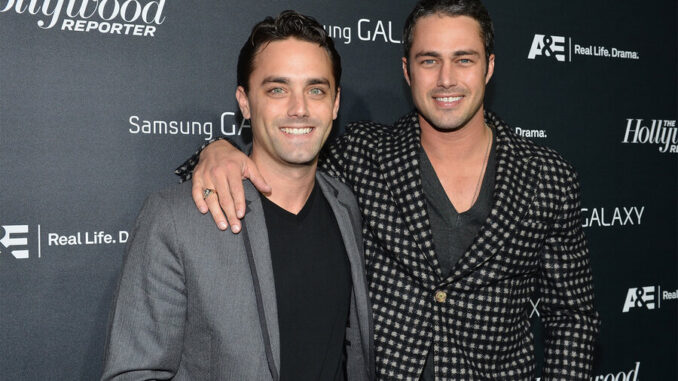
The Ashes of Loss, the Ember of Hope: Chicago Fire's Shifting Landscape
The television landscape is a volatile one, marked by the ebb and flow of characters, the drama of storylines, and the constant pressure to keep audiences engaged. For NBC's long-running procedural drama, Chicago Fire, this is a reality felt acutely. As the show gears up for its season 11 finale, the news is a bittersweet tapestry: the triumphant return of Jesse Spencer as Captain Matthew Casey, a figure synonymous with the show's heart and heroism, juxtaposed against the stark absence of Taylor Kinney as Lieutenant Kelly Severide, a character equally beloved and deeply intertwined with the show’s narrative. This dichotomy reflects the inherent challenges of maintaining a successful series, navigating the real-life departures of actors while simultaneously honoring the established relationships and emotional investments of its devoted fanbase.
The announcement of Jesse Spencer's return is undoubtedly a spark of hope flickering amidst the lingering absence of Kinney. Casey, with his steadfast morality and unwavering dedication to his crew, represented the quintessential firefighter hero. His departure in season 10 left a void, a palpable sense of loss within Firehouse 51. His return, even for a single episode, acts as a balm, a reminder of the show's core values and the enduring bond of the firefighting family. He represents the stability and reassurance that has been somewhat shaken by recent events, a tangible link to the show's past, allowing fans to revisit a time when Casey and Severide stood shoulder-to-shoulder, battling flames and personal demons alike. The potential for closure, or even a rekindling of the relationship with Stella Kidd, adds another layer of excitement, promising a satisfying, emotionally resonant conclusion to the season.
Conversely, the news of Taylor Kinney's continued absence casts a shadow over the finale. Severide, the brooding, talented rescue squad lieutenant, is arguably as intrinsic to the show's DNA as Casey. His turbulent past, his unwavering loyalty, and his undeniable chemistry with Stella have captivated audiences for years. Kinney's departure, for personal reasons, leaves a gaping hole in the narrative. The character's absence necessitates plot contortions, requiring the writers to explain his vanishing act and craft storylines that account for his missing presence. While Stella’s character has evolved and strengthened, her storyline still heavily revolves around Severide, making his absence even more pronounced. His absence raises questions about the long-term trajectory of the show, particularly regarding Stella’s character development and her capacity to shoulder the weight of her leadership role without her anchor.
The contrasting narratives surrounding Spencer and Kinney underscore the delicate balancing act that showrunners face. On one hand, the return of a familiar face is a powerful tool for nostalgia and audience engagement. It allows the show to tap into its established fanbase, offering a comforting sense of continuity amidst change. The familiar camaraderie, the inside jokes, the shared history – these elements are crucial for maintaining the show's emotional resonance and reminding viewers why they fell in love with Firehouse 51 in the first place.
On the other hand, the absence of a key character forces the show to adapt and evolve. It presents an opportunity to explore new storylines, to develop existing characters in unexpected ways, and to introduce fresh perspectives to the narrative. However, this evolution must be handled with care, avoiding drastic shifts in tone or characterization that could alienate loyal viewers. The challenge lies in honoring the established history of the show while simultaneously forging a new path forward.
Ultimately, the season 11 finale of Chicago Fire stands at a crossroads. The return of Jesse Spencer offers a glimmer of hope, a nostalgic embrace of the show's roots. However, the continued absence of Taylor Kinney forces the show to confront its limitations and to redefine its identity in the face of significant change. Whether the ashes of loss will ultimately fuel a phoenix-like rebirth or simply smolder, leaving a lingering sense of disappointment, remains to be seen. But one thing is certain: the success of the finale hinges on its ability to navigate this complex emotional landscape, honoring the past while bravely embracing the future, ensuring that the flame of Chicago Fire continues to burn bright.
